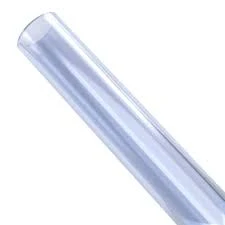דצמ . 11, 2024 09:52 Back to list
Understanding the Benefits and Applications of HDPE Pipes in Modern Infrastructure
Understanding HDPE Pipes Advantages and Applications
High-Density Polyethylene (HDPE) pipes have become a popular choice for various applications in industries ranging from water supply to gas distribution. Their robust characteristics make them a preferred alternative to traditional materials such as PVC, iron, and concrete. In this article, we will explore what HDPE pipes are, their advantages, and their key applications.
What are HDPE Pipes?
HDPE pipes are made from high-density polyethylene, a thermoplastic polymer known for its strength, durability, and resistance to various environmental factors. The manufacturing process involves melting the polyethylene resin and forming it into pipes of varying diameters and lengths. These pipes are available in different pressure ratings, making them suitable for a wide range of applications.
Advantages of HDPE Pipes
1. Durability HDPE pipes are resistant to corrosion and can withstand a variety of chemicals, making them ideal for both underground and above-ground installations. Their resilience also means they do not require frequent replacement, which can be a significant cost-saving factor.
2. Flexibility Unlike many traditional pipe materials, HDPE pipes are flexible, which allows for easy installation, especially in challenging terrains. This flexibility also means they can withstand ground movement without cracking or breaking.
3. Lightweight HDPE pipes are significantly lighter than metal or concrete pipes. This lightweight nature facilitates easier transportation and installation, reducing overall labor costs and time.
4. Leak Resistance The design of HDPE piping systems often includes fusion welding, creating seamless joints that minimize the risk of leaks. In applications where water conservation is crucial, this characteristic is particularly beneficial.
5. Environmental Impact HDPE is a recyclable material, and its production generates relatively low emissions compared to other materials. Using HDPE pipes can contribute to environmentally friendly practices in construction and utility management.
hdpe pipe

6. Cost-Effectiveness Although the initial investment in HDPE pipes may be comparable to other materials, their long lifespan, low maintenance requirements, and resistance to damage can lead to substantial savings over time.
Applications of HDPE Pipes
HDPE pipes find utility in various sectors owing to their unique properties
1. Water Supply Systems HDPE pipes are extensively used for potable water distribution due to their non-toxic nature and resistance to leakage. They can efficiently transport water over long distances and can be laid in a trenchless manner, minimizing disruption to the surrounding environment.
2. Sewage and Waste Management Their excellent chemical resistance makes HDPE pipes suitable for sewage systems and industrial waste disposal. They can handle wastewater effectively without degrading or leaking.
3. Gas Distribution HDPE pipes are also utilized in natural gas distribution systems. Their robust construction ensures safe and reliable transport of gas, helping to minimize the risk of leaks that could pose safety risks.
4. Irrigation Systems In agriculture, HDPE pipes are employed for drip irrigation and other irrigation systems. Their ability to efficiently distribute water helps improve crop yields while conserving water resources.
5. Telecommunications HDPE pipes are increasingly used for protecting fiber optic cables due to their flexibility and resistance to damage, ensuring the safety of crucial communication infrastructure.
Conclusion
In summary, HDPE pipes are an innovative solution that provides numerous benefits across a wide range of applications. Their durability, flexibility, and cost-effectiveness make them an ideal choice for modern infrastructure projects. As industries continue to prioritize sustainability and efficiency, the use of HDPE pipes is likely to grow, solidifying their position as a key player in the piping industry. Whether for water supply, waste management, or agricultural purposes, HDPE pipes represent a forward-looking choice in material technology.
-
Durable PP Rigid Sheet: Versatile & High-Quality Plastic Panels
NewsAug.08,2025
-
Premium Glossy PP Rigid Sheet – Durable & Versatile
NewsAug.07,2025
-
High-Quality HDPE Sheet | Durable Plastic Panels
NewsAug.06,2025
-
High-Precision PVC Rigid Sheets for Vacuum Forming | AI-Optimized
NewsAug.05,2025
-
Durable PVC-M Water Supply Pipes | 60-Year Life
NewsAug.04,2025
-
Premium HDPE Water Supply Pipes: Durable & Leak-Proof
NewsAug.03,2025

